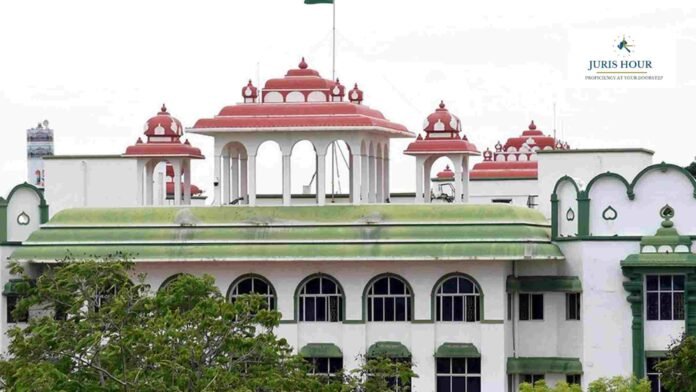The Madurai Bench of the Madras High Court has struck down a show cause notice issued to L S Mills Limited, holding that the levy of Integrated GST (IGST) on ocean freight in Cost, Insurance and Freight (CIF) contracts was unconstitutional and contrary to the GST scheme.
A Division Bench comprising Justice Dr. Anita Sumanth and Justice C. Kumarappan declared Sl. No. 10 of Notification No. 10/2017-Integrated Tax (Rate) and Sl. No. 9(ii) of Notification No. 8/2017-Integrated Tax (Rate), both dated June 28, 2017, as ultra vires the Constitution and the Integrated Goods and Services Tax Act, 2017.
The petitioner/assessee, L S Mills Limited challenged the validity of the notifications and the consequential show cause notice dated December 15, 2021 issued by the Assistant Commissioner of Central GST & Central Excise, Dindigul.
The Bench relied heavily on the Supreme Court’s landmark judgment in Union of India v. Mohit Minerals Pvt. Ltd.(2022), which had invalidated similar provisions imposing IGST on ocean freight paid under CIF contracts.
Citing the apex court’s reasoning, the Bench reiterated that the levy of IGST on services of transportation, when the importer had already paid IGST on the composite value of imported goods (which included freight and insurance), amounted to double taxation and violated the principle of composite supply under Section 8 of the Central Goods and Services Tax (CGST) Act.
The Court noted that under the GST framework, the supply of goods and related services such as freight and insurance in a CIF transaction constitute a single composite supply. The Supreme Court had made it clear that “a tax on the supply of a service, which has already been included by the legislation as a tax on the composite supply of goods, cannot be allowed.”
L S Mills contended that the impugned notifications, which made the importer liable to pay IGST on ocean freight under the reverse charge mechanism, were unconstitutional as they went beyond the scope of the IGST Act and were inconsistent with Articles 245 and 269A of the Constitution.
The petitioner also argued that the delegated legislation could not bifurcate components of a composite transaction to impose a separate levy, as doing so was contrary to the very objective of the GST regime—to subsume all indirect taxes into a unified structure.
The High Court also drew attention to the Supreme Court’s interpretation of Article 279A of the Constitution, which establishes the GST Council. The apex court had clarified that the Council’s recommendations are not binding on either the Union or the States, but hold only persuasive value, maintaining the principle of cooperative federalism.
This, the Bench noted, prevents fiscal dominance by either level of government and preserves legislative autonomy under Article 246A, which confers simultaneous powers to both Parliament and State Legislatures to enact GST laws.
In light of the Supreme Court’s ruling and the legal position clarified therein, the Madras High Court concluded that the show cause notice issued to L S Mills Limited was unsustainable.
“As a consequence of the above, the show cause notice issued by the Assistant Commissioner of Central GST & Central Excise, dated 15.12.2021, is quashed. The Writ Petition is allowed. No costs,” the Bench held.
Case Details
Case Title: L S Mills Limited Versus UOI
Case No.: W.P.(MD)No.3129 of 2022
Date: 13/10/2025
Counsel For Petitioner: S.Karunakar
Counsel For Respondent: P.Paul Pandi

